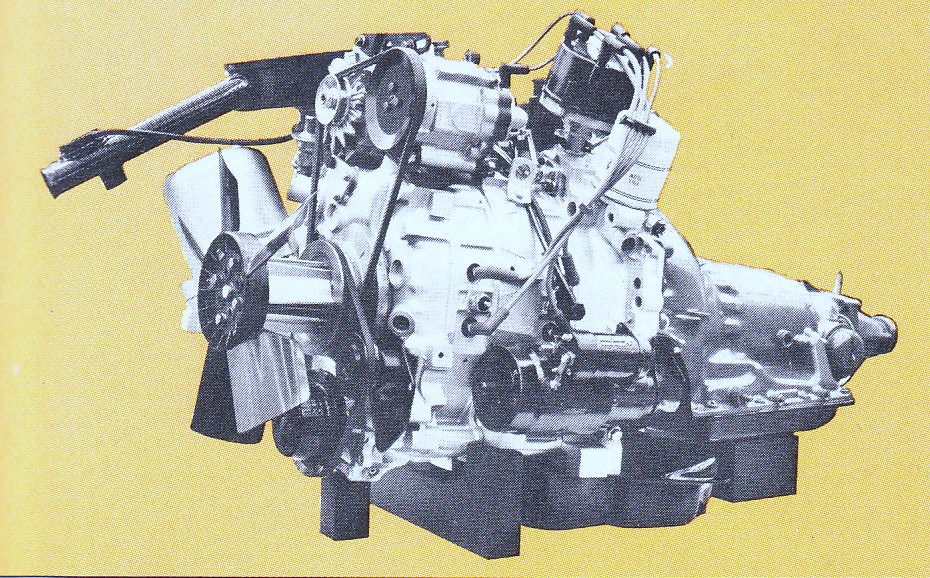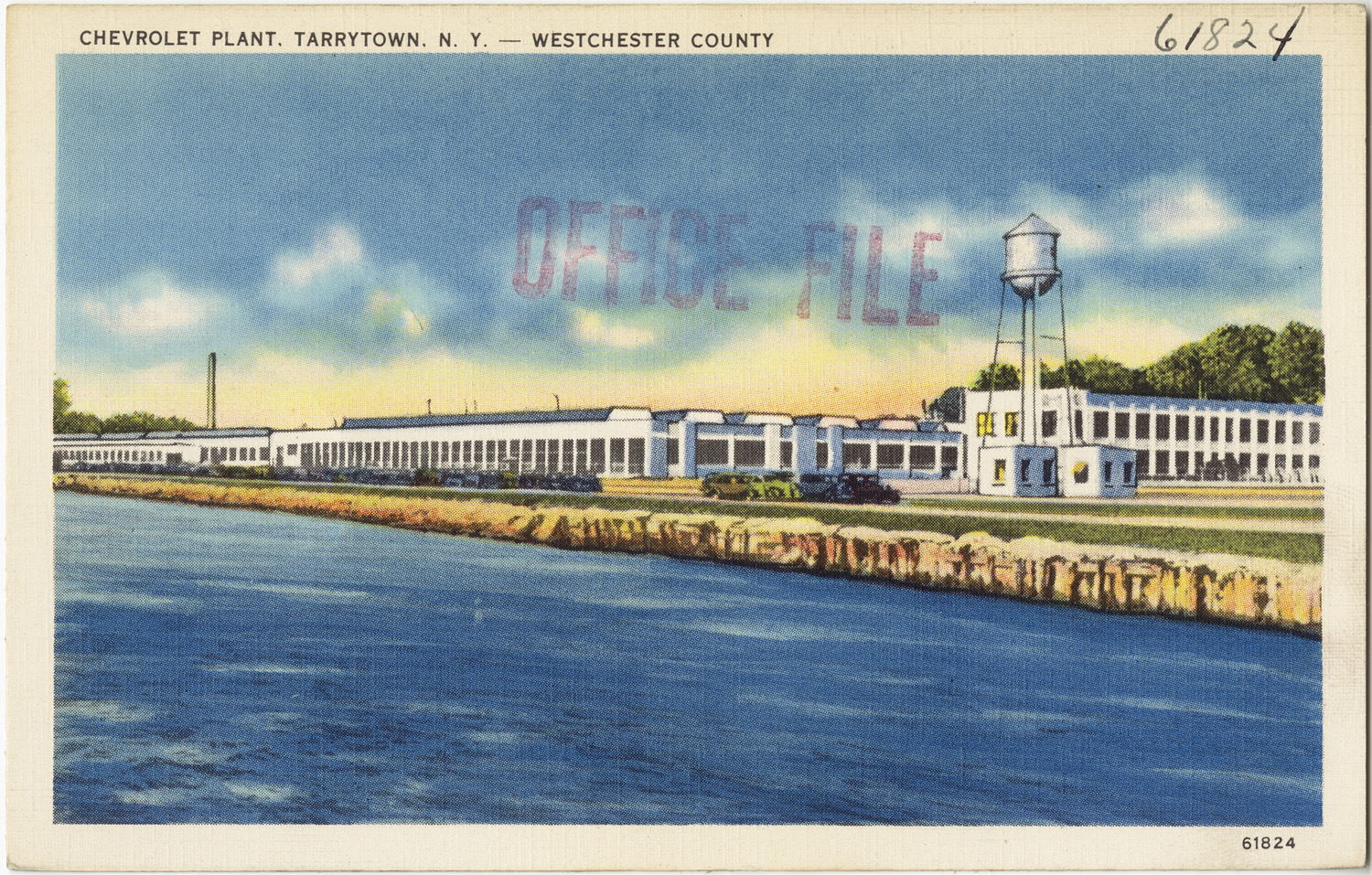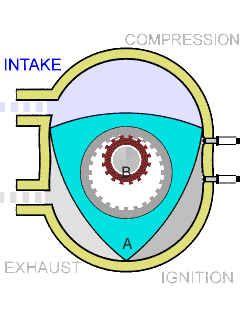|
Chevrolet Monza
The Chevrolet Monza is a subcompact automobile produced by Chevrolet for the 1975 through 1980 model years. The Monza is based on the Chevrolet Vega, sharing its wheelbase, width, and standard inline-four engine. The car was designed to accommodate the GM-Wankel rotary engine, but due to mediocre fuel economy and emissions-compliance issues the engine was cancelled, and a V8 engine option was substituted. The Monza name has also been used for several other cars. Introduced for the 1975 model year, the Monza 2+2 and Monza Towne Coupe competed with the Ford Mustang II and other sporty coupes.h-body.org General Motors' H-body variants, the Buick Skyhawk and Oldsmobile Starfire, were produced using the Monza 2+2's body with grille and trim variations and Buick's 3.8 liter V6 engine. The Pontiac Sunbird variant was introduced for the 1976 model year, initially offered only in the Monza Towne Coupe body with the 2+2 hatchback added for the 1977 model year. The Monza nameplate originate ... [...More Info...] [...Related Items...] OR: [Wikipedia] [Google] [Baidu] |
Chevrolet
Chevrolet ( ), colloquially referred to as Chevy and formally the Chevrolet Motor Division of General Motors Company, is an American automobile division of the American manufacturer General Motors (GM). Louis Chevrolet (1878–1941) and ousted General Motors founder William C. Durant (1861–1947) started the company on November 3, 1911 as the Chevrolet Motor Car Company. Durant used the Chevrolet Motor Car Company to acquire a controlling stake in General Motors with a reverse merger occurring on May 2, 1918, and propelled himself back to the GM presidency. After Durant's second ousting in 1919, Alfred Sloan, with his maxim "a car for every purse and purpose", would pick the Chevrolet brand to become the volume leader in the General Motors family, selling mainstream vehicles to compete with Henry Ford's Model T in 1919 and overtaking Ford as the best-selling car in the United States by 1929 with the Chevrolet International. Chevrolet-branded vehicles are sold in most autom ... [...More Info...] [...Related Items...] OR: [Wikipedia] [Google] [Baidu] |
V8 Engine
A V8 engine is an eight-cylinder piston engine in which two banks of four cylinders share a common crankshaft and are arranged in a V configuration. The first V8 engine was produced by the French Antoinette company in 1904, developed and used in cars and speedboats but primarily aircraft; while the American 1914–1935 ''Cadillac L-Head'' engine is considered the first road going V8 engine to be mass produced in significant quantities. The popularity of V8 engines in cars was greatly increased following the 1932 introduction of the ''Ford Flathead V8''. In the early 21st century, use of V8 engines in passenger vehicles declined as automobile manufacturers opted for more fuel efficient, lower capacity engines, or hybrid and electric drivetrains. Design V-angle The majority of V8 engines use a V-angle (the angle between the two banks of cylinders) of 90 degrees. This angle results in good engine balance, which results in low vibrations; however, the downside is a larg ... [...More Info...] [...Related Items...] OR: [Wikipedia] [Google] [Baidu] |
Motor Trend
''MotorTrend'' is an American automobile magazine. It first appeared in September 1949, and designated the first Car of the Year, also in 1949. Petersen Publishing Company in Los Angeles, California, Los Angeles published ''MotorTrend'' until 1998, when it was sold to British publisher EMAP, who then sold the former Petersen magazines to Primedia in 2001. MotorTrend bears the tagline "The Magazine for a Motoring World". As of 2019 it is published by Motor Trend Group. It has a monthly circulation of over one million. Contents and sections The contents of ''MotorTrend'' magazines are divided up into sections, or departments. Road tests ''MotorTrend'' magazine provides its readers with written "road tests" of vehicles. These road tests are published monthly, and are meant to give readers information about the featured vehicle, certain aspects of the vehicle, and what the readers can expect if the featured vehicle is purchased. Vehicle comparisons There are two main types of ''Mot ... [...More Info...] [...Related Items...] OR: [Wikipedia] [Google] [Baidu] |
Wankel Engine
The Wankel engine (, ) is a type of internal combustion engine using an Eccentric (mechanism), eccentric rotary combustion engine, rotary design to convert pressure into rotating motion. It was invented by German engineer Felix Wankel, and designed by German engineer Hanns-Dieter Paschke. The Wankel engine's rotor, which creates the turning motion, is similar in shape to a Reuleaux triangle, with the sides having less curvature. The rotor rotates inside an oval-like epitrochoidal housing, around a central output shaft. The rotor spins in a hula-hoop fashion around the central output shaft, spinning the shaft via toothed gearing. Due to its inherent poor thermodynamics, the Wankel engine has a significantly worse thermal efficiency and worse exhaust gas behaviour when compared against the Otto engine or the Diesel engine, which is why the Wankel engine has seen limited use since its introduction in the 1960s. However, its advantages of compact design, smoothness, lower weight and ... [...More Info...] [...Related Items...] OR: [Wikipedia] [Google] [Baidu] |
Inline-four
A straight-four engine (also called an inline-four) is a four-cylinder piston engine where cylinders are arranged in a line along a common crankshaft. The vast majority of automotive four-cylinder engines use a straight-four layout (with the exceptions of the flat-four engines produced by Subaru and Porsche) and the layout is also very common in motorcycles and other machinery. Therefore the term "four-cylinder engine" is usually synonymous with straight-four engines. When a straight-four engine is installed at an inclined angle (instead of with the cylinders oriented vertically), it is sometimes called a slant-four. Between 2005 and 2008, the proportion of new vehicles sold in the United States with four-cylinder engines rose from 30% to 47%. By the 2020 model year, the share for light-duty vehicles had risen to 59%. Design A four-stroke straight-four engine always has a cylinder on its power stroke, unlike engines with fewer cylinders where there is no power stroke occu ... [...More Info...] [...Related Items...] OR: [Wikipedia] [Google] [Baidu] |
Wheelbase
In both road and rail vehicles, the wheelbase is the horizontal distance between the centers of the front and rear wheels. For road vehicles with more than two axles (e.g. some trucks), the wheelbase is the distance between the steering (front) axle and the centerpoint of the driving axle group. In the case of a tri-axle truck, the wheelbase would be the distance between the steering axle and a point midway between the two rear axles. Vehicles The wheelbase of a vehicle equals the distance between its front and rear wheels. At equilibrium, the total torque of the forces acting on a vehicle is zero. Therefore, the wheelbase is related to the force on each pair of tires by the following formula: :F_f = mg :F_r = mg where F_f is the force on the front tires, F_r is the force on the rear tires, L is the wheelbase, d_r is the distance from the center of mass (CM) to the rear wheels, d_f is the distance from the center of mass to the front wheels (d_f + d_r = L), m is the mass ... [...More Info...] [...Related Items...] OR: [Wikipedia] [Google] [Baidu] |
Model Year
The model year (sometimes abbreviated "MY") is a method of describing the version of a product which has been produced over multiple years. The model year may or may not be the same as the calendar year in which the product was manufactured. Automobiles United States and Canada Automobiles in the United States and Canada are identified and regulated by model year, whereas other markets use production date (month/year) to identify specific vehicles, and model codes in place of the "year" (model year) in the North American make-model-year identifier. In technical documents generated within the auto industry and its regulating agencies such as the U.S. National Highway Traffic Safety Administration and United States Environmental Protection Agency and Transport Canada and Environment Canada, the letters "MY" often precede the year (as in "MY2019" or "MY93"). Even without this prefix, however, in the North American context it is usually the model year rather than the vehicle' ... [...More Info...] [...Related Items...] OR: [Wikipedia] [Google] [Baidu] |
Subcompact Car
Subcompact car is a North American classification for cars smaller than a compact car. It is broadly equivalent to the B-segment (Europe), supermini (Great Britain) or A0-class (China) classifications. According to the U.S. Environmental Protection Agency (EPA) car size class definition, the subcompact category sits between the "minicompact" and "compact" categories. The EPA definition of a subcompact is a passenger car with a combined interior and cargo volume of between . Current examples of subcompact cars are the Nissan Versa and Hyundai Accent. The smaller cars in the A-segment/city car category (such as the Chevrolet Spark and Smart Fortwo) are sometimes called subcompacts in the U.S., because the EPA's name for this smaller category — "minicompact" — is not commonly used by the general public. The prevalence of small cars in the United States increased in the 1960s due to increased imports of cars from Europe and Japan. Widespread use of the term subcompact coincide ... [...More Info...] [...Related Items...] OR: [Wikipedia] [Google] [Baidu] |
Oldsmobile Starfire
The Oldsmobile Starfire is an automobile nameplate used by Oldsmobile, produced in three non-contiguous generations beginning in 1954. The Starfire nameplate made its debut as a convertible concept car in 1953 followed with the 1954–1956 Ninety-Eight series convertibles that shared a "halo status" with the Buick Skylark and Cadillac Eldorado. For 1957 only, all Ninety-Eight series models were named "98 Starfire ". Oldsmobile during this time period was one of the most popular brands selling, and the company saw an opportunity to benefit from the Space Race of the 1960s. The "rocket" terminology was already a benefit with their Rocket V8. After a two-year hiatus the Starfire name returned for 1961 as separate model, offered in a single convertible body style. Intended to compete in the growing personal luxury car market, from 1961 to 1965 the Starfire Convertible was the highest-priced model offered by Oldsmobile. While it shared most of its sheet metal with other full-si ... [...More Info...] [...Related Items...] OR: [Wikipedia] [Google] [Baidu] |
Buick Skyhawk
The Buick Skyhawk is an automobile produced by Buick in two generations for the 1975 through 1989 model years. The first generation (1975-1980) were two-door hatchbacks using the subcompact, rear-wheel drive H-body platform, a badge engineered entry-level version of the Chevrolet Monza, which was based on the Chevrolet Vega while the only engine available was a V6. Introducing a subcompact was a new approach for Buick and GM, with a similar approach from Oldsmobile with the Starfire hatchback. The second generation (1982-1989) Skyhawks were built on the compact, front-wheel drive J-car platform that was available in four body styles: two-door sedan and hatchback, as well as four-door sedan and station wagon — manufactured alongside its rebadged variants, the Chevrolet Cavalier, Cadillac Cimarron, Oldsmobile Firenza, and Pontiac J2000/2000/Sunbird at GM's South Gate Assembly and Janesville Assembly plants. __TOC__ First generation (1975–1980) The "first generati ... [...More Info...] [...Related Items...] OR: [Wikipedia] [Google] [Baidu] |
Pontiac Sunbird
The Pontiac Sunbird (also known as the Pontiac J2000 and Pontiac 2000) is a model line that was manufactured and marketed by Pontiac from the 1976 to the 1994 model years. Loosely deriving its name from the Pontiac Firebird, the Sunbird was introduced as the eventual replacement for the Pontiac Astre, replacing it entirely in 1978 as the smallest Pontiac (the later T1000 was slotted below it in size). The first generation of the Sunbird used the subcompact GM H platform. Serving as the Pontiac counterpart of the Chevrolet Monza, the Sunbird was offered as a two-door notchback coupé and three-door hatchback and station wagon. The model was manufactured alongside the Monza, Buick Skyhawk, and Oldsmobile Starfire at Lordstown Assembly (Lordstown, Ohio) and Sainte-Thérèse Assembly (Sainte-Thérèse, Quebec). The second generation of the Sunbird used the compact GM J platform. Serving as the Pontiac counterpart of the Chevrolet Cavalier, the Sunbird was marketed at various ... [...More Info...] [...Related Items...] OR: [Wikipedia] [Google] [Baidu] |
Automatic Transmission
An automatic transmission (sometimes abbreviated to auto or AT) is a multi-speed transmission used in internal combustion engine-based motor vehicles that does not require any input from the driver to change forward gears under normal driving conditions. It typically includes a transmission, axle, and differential in one integrated assembly, thus technically becoming a transaxle. The most common type of automatic transmission is the hydraulic automatic, which uses a planetary gearset, hydraulic controls, and a torque converter. Other types of automatic transmissions include continuously variable transmissions (CVT), automated manual transmissions (AMT), and dual-clutch transmissions (DCT). An electronic automatic transmission (EAT) may also be called an electronically controlled transmission (ECT), or electronic automatic transaxle (EATX). A hydraulic automatic transmission may also colloquially called a " slushbox" or simply a "torque converter", although the latter term c ... [...More Info...] [...Related Items...] OR: [Wikipedia] [Google] [Baidu] |










